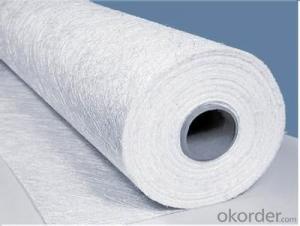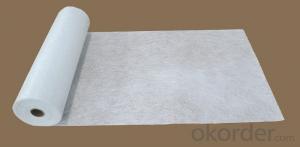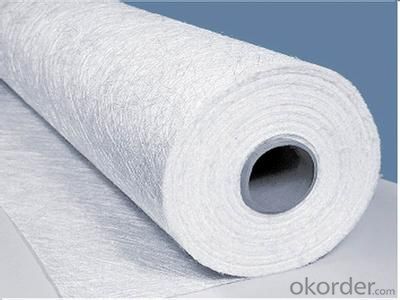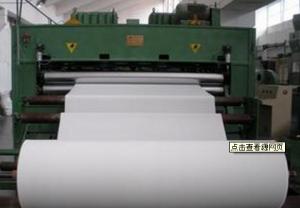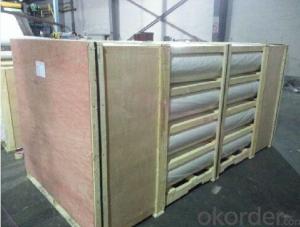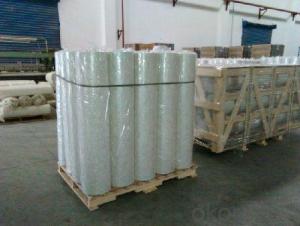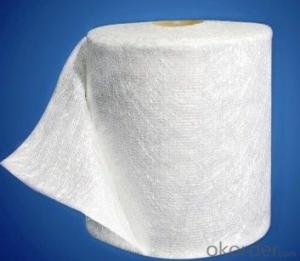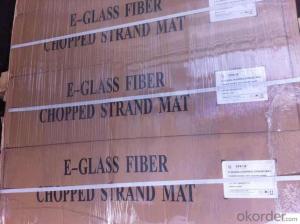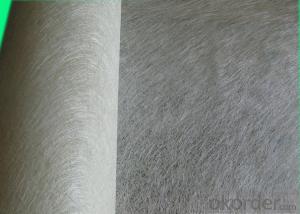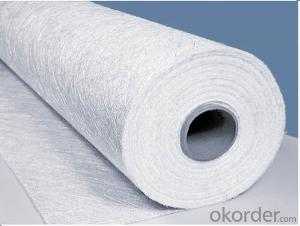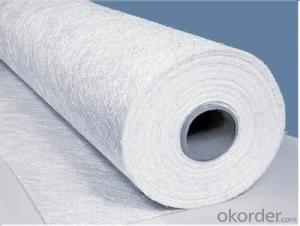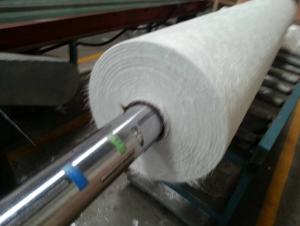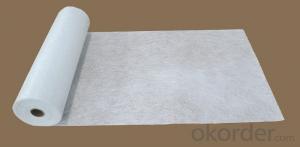Fiberglass Mat Tissue E Glass Powder Chopped Strand Mat for Filament Winding
- Loading Port:
- Shanghai
- Payment Terms:
- TT OR LC
- Min Order Qty:
- 20000 kg
- Supply Capability:
- 200000 kg/month
OKorder Service Pledge
OKorder Financial Service
You Might Also Like
1.Brief Introduction
E-Glass Powder Chopped Strand Mat is made of randomly distributed chopped strands held together by a powder binder.
It is compatible with UP, VE, EP, PF resins.
The roll width ranges from 50mm to 3300mm.
2.Product Features
Fast breakdown in styrene
High tensile strength, allowing for use in hand lay-up process to produce large-area parts
3.Product Specifications
Property | Area Weight | Moisture Content | Size Content | Breakage Strength | Width |
(%) | (%) | (%) | (N) | (mm) | |
Property | IS03374 | ISO3344 | ISO1887 | ISO3342 | |
EMC80P | ±7.5 | ≤0.20 | 8-12 | ≥40 | 50-3300 |
EMC100P | ≥40 | ||||
EMC120P | ≥50 | ||||
EMC150P | 4-8 | ≥50 | |||
EMC180P | ≥60 | ||||
EMC200P | ≥60 | ||||
EMC225P | ≥60 | ||||
EMC300P | 3-4 | ≥90 | |||
EMC450P | ≥120 | ||||
EMC600P | ≥150 | ||||
EMC900P | ≥200 |
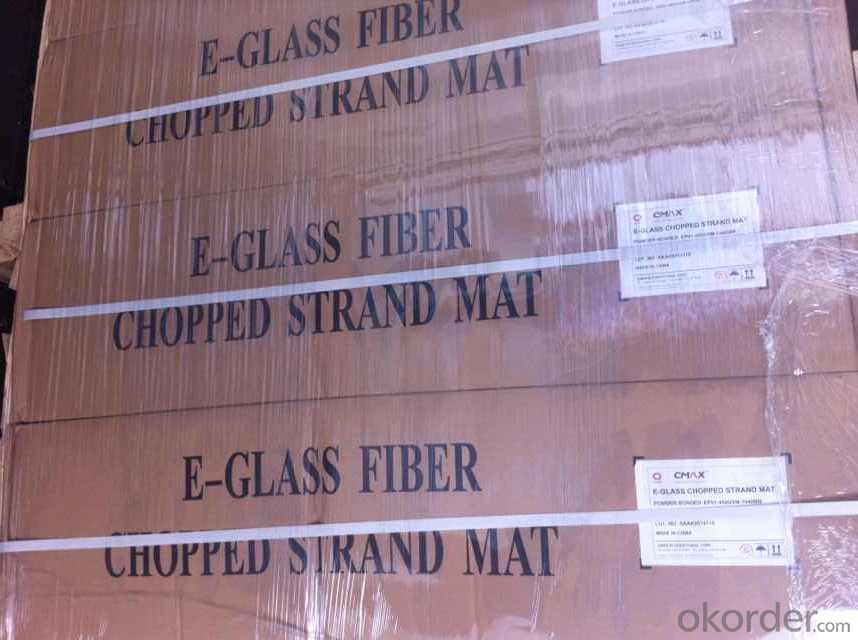
4.FAQ
Storage:
Unless otherwise specified, Chopped Strand Mat should be stored in a dry, cool and rain-proof area. It is recommended that the room temperature and humidity should be always maintained at 15℃~35℃ and 35%~65% respectively.
- Q: Is fiberglass mat tissue resistant to earthquakes?
- No, fiberglass mat tissue is not specifically resistant to earthquakes. Fiberglass mat tissue is a lightweight material commonly used for insulation and reinforcement purposes in construction. While it can provide strength and stability to structures, it does not possess properties that make it inherently earthquake-resistant. To withstand earthquakes, buildings require a combination of design features, materials, and construction techniques that are specifically engineered to withstand seismic forces.
- Q: What is the moisture resistance rating of fiberglass mat tissue?
- The moisture resistance rating of fiberglass mat tissue may differ depending on the specific product and manufacturer. Nonetheless, fiberglass mat tissue is renowned for its exceptional moisture resistance properties. It is typically engineered to exhibit high resistance against water absorption, rendering it suitable for applications where moisture exposure is a concern. This moisture resistance attribute aids in preserving the structural integrity and performance of the fiberglass mat tissue, even under humid or wet conditions. It is crucial to consider the manufacturer's provided product specifications to ascertain the precise moisture resistance rating when selecting fiberglass mat tissue for a particular application.
- Q: What is the dimensional stability of fiberglass mat tissue?
- The dimensional stability of fiberglass mat tissue refers to its ability to maintain its size and shape under various conditions. Fiberglass mat tissue is known for its excellent dimensional stability, making it highly resistant to shrinking, expanding, or warping. This stability is achieved through the manufacturing process, which involves bonding glass fibers together using a binder material. This binder not only ensures the integrity of the mat tissue but also helps it maintain its dimensional stability over time. Additionally, the inherent properties of fiberglass, such as its high strength and stiffness, contribute to its exceptional dimensional stability. These characteristics make fiberglass mat tissue a popular choice in various applications, including construction, automotive, and aerospace industries, where consistent dimensions are crucial for optimal performance and durability.
- Q: Can fiberglass mat tissue be used for boat building?
- Yes, fiberglass mat tissue can be used for boat building. It is commonly used as a reinforcement material in boat construction due to its strength, durability, and ability to resist water damage.
- Q: Does fiberglass mat tissue require any special maintenance after installation?
- After the installation of fiberglass mat tissue, it typically does not require any special maintenance. Fiberglass mat tissue is designed to be durable and resistant to wear and tear. It is also highly resistant to moisture, chemicals, and UV radiation, making it suitable for various applications such as roofing, insulation, and wall covering. However, it is recommended to inspect the fiberglass mat tissue periodically to ensure it remains in good condition. This can involve checking for any signs of damage, such as cracks, tears, or delamination. If any issues are found, they should be addressed promptly to prevent further damage. Additionally, it is important to follow the manufacturer's guidelines and recommendations for the specific type of fiberglass mat tissue used. This may include avoiding exposure to certain chemicals or using appropriate cleaning methods if necessary. Overall, while fiberglass mat tissue is generally low-maintenance, regular inspections and adherence to manufacturer's guidelines can help ensure its longevity and optimal performance.
- Q: What are the different weights available for fiberglass mat tissue?
- The different weights available for fiberglass mat tissue range from 20 grams per square meter (gsm) to 100 gsm.
- Q: Can fiberglass mat tissue be used for insulation purposes?
- Yes, fiberglass mat tissue can be used for insulation purposes. It is commonly used as a layer in insulation systems to provide thermal resistance and enhance the overall insulation performance.
- Q: Can fiberglass mat tissue be used for repairing fiberglass kayaks?
- Yes, fiberglass mat tissue can be used for repairing fiberglass kayaks. It is commonly used as a reinforcement material in fiberglass repairs due to its strength and ability to conform to curved surfaces.
- Q: What is the expected lifespan of fiberglass mat tissue in residential applications?
- The expected lifespan of fiberglass mat tissue in residential applications can vary depending on various factors such as the quality of the material, installation techniques, climate conditions, and maintenance. However, on average, fiberglass mat tissue can last for 20 to 30 years in residential applications when properly installed and maintained.
- Q: Is fiberglass mat tissue resistant to mold and mildew?
- Yes, fiberglass mat tissue is resistant to mold and mildew due to its non-porous and moisture-resistant properties.
Send your message to us
Fiberglass Mat Tissue E Glass Powder Chopped Strand Mat for Filament Winding
- Loading Port:
- Shanghai
- Payment Terms:
- TT OR LC
- Min Order Qty:
- 20000 kg
- Supply Capability:
- 200000 kg/month
OKorder Service Pledge
OKorder Financial Service
Similar products
Hot products
Hot Searches
Related keywords
